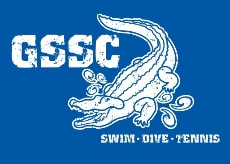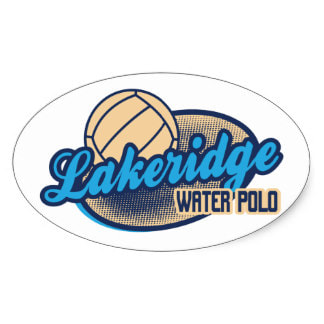Frequently Asked Questions
What is the league?
The league started in 1993 to bring the exciting sport of water polo to the Seattle area. It is comprised of teams from both the northern and southern sections of the Seattle summer swim league. The emphasis of the league is strictly on having fun, teaching skills and providing opportunities for enjoyable competition.
Who is eligible to play?
Each team sets its own membership rules. Some restrict players to pool members only, while others are open to those who are not members of the pool. To be eligible to play in games each player must have paid the club's water polo fee for the season.
The league requires that any player that belongs to a club in the Greater Seattle Summer Swim League or the Midlakes Summer League that offers water polo, must play with that pool’s team. You cannot belong to one club that offers the sport but play with another club.
If, however, a player is a member of a Greater Seattle Summer Swim League club that does not offer water polo, the player may practice and play with another Club for the regular season games only.
This limitation exists to provide an incentive for the development of water polo programs at all the summer league pools.
How old do you have to be to play?
Again, each team decides how young the players can start. The age for determining a player’s age group is their age as of June 15th. That means that June 15th is the worst possible birthday, while June 16th is the best.
On the older end, the league is open to all players through the summer after they graduate from high school as long as they are not older than 19.
Do the regular season games determine who makes playoffs?
No, playoffs are open to all teams. In general the regular season records will determine seeding for the prelims. New teams that form are encouraged to participate in the prelims/championships as well
What age groups can a player compete in?
Because numbers are sometimes low, many players end up playing in their own age group and sometimes in the older groups as well (for example, a 10-year-old playing in the 12 & under or even 14 & under). Unfortunately, this is often necessary so that games can be played. The league allows you to play up one or two age groups during the regular season. During championship week, however, players may only play up one age group. This is not to punish younger players but to improve the quality of the play for the older age groups and to make sure that smaller, younger players are not hurt.
What divisions are there?
Currently, there are Open (boys and girls) and Girls Championships for 10 & under, 12 & under, 14 & under and 18 & under. We do, however, play a limited number of games for the 8 & under age group.
Is there an All City Champion or other awards?
Individual medals go to the winner and runner-up of each division. Rotating Championship Trophies go to the winner of all divisions as well. An All-City club champion will be determined by assigning points to the first through fourth place teams in each division (kind of like a swim meet). Then, we will total them up and crown a champion. First place gets five points, second three points, third two points and fourth one point.
How are the games officiated?
First off, realize that the game of water polo is probably the most difficult game on the planet to referee because it is a contact sport in which nearly all the contact takes place below the surface of the water. That said, we do our best to create a safe, controlled game. We are moving to having a qualified pool of certified USA Water Polo referees. However due to our schedule sometimes we have coaches or former players referee some of the games with older players.
The league started in 1993 to bring the exciting sport of water polo to the Seattle area. It is comprised of teams from both the northern and southern sections of the Seattle summer swim league. The emphasis of the league is strictly on having fun, teaching skills and providing opportunities for enjoyable competition.
Who is eligible to play?
Each team sets its own membership rules. Some restrict players to pool members only, while others are open to those who are not members of the pool. To be eligible to play in games each player must have paid the club's water polo fee for the season.
The league requires that any player that belongs to a club in the Greater Seattle Summer Swim League or the Midlakes Summer League that offers water polo, must play with that pool’s team. You cannot belong to one club that offers the sport but play with another club.
If, however, a player is a member of a Greater Seattle Summer Swim League club that does not offer water polo, the player may practice and play with another Club for the regular season games only.
This limitation exists to provide an incentive for the development of water polo programs at all the summer league pools.
How old do you have to be to play?
Again, each team decides how young the players can start. The age for determining a player’s age group is their age as of June 15th. That means that June 15th is the worst possible birthday, while June 16th is the best.
On the older end, the league is open to all players through the summer after they graduate from high school as long as they are not older than 19.
Do the regular season games determine who makes playoffs?
No, playoffs are open to all teams. In general the regular season records will determine seeding for the prelims. New teams that form are encouraged to participate in the prelims/championships as well
What age groups can a player compete in?
Because numbers are sometimes low, many players end up playing in their own age group and sometimes in the older groups as well (for example, a 10-year-old playing in the 12 & under or even 14 & under). Unfortunately, this is often necessary so that games can be played. The league allows you to play up one or two age groups during the regular season. During championship week, however, players may only play up one age group. This is not to punish younger players but to improve the quality of the play for the older age groups and to make sure that smaller, younger players are not hurt.
What divisions are there?
Currently, there are Open (boys and girls) and Girls Championships for 10 & under, 12 & under, 14 & under and 18 & under. We do, however, play a limited number of games for the 8 & under age group.
Is there an All City Champion or other awards?
Individual medals go to the winner and runner-up of each division. Rotating Championship Trophies go to the winner of all divisions as well. An All-City club champion will be determined by assigning points to the first through fourth place teams in each division (kind of like a swim meet). Then, we will total them up and crown a champion. First place gets five points, second three points, third two points and fourth one point.
How are the games officiated?
First off, realize that the game of water polo is probably the most difficult game on the planet to referee because it is a contact sport in which nearly all the contact takes place below the surface of the water. That said, we do our best to create a safe, controlled game. We are moving to having a qualified pool of certified USA Water Polo referees. However due to our schedule sometimes we have coaches or former players referee some of the games with older players.












